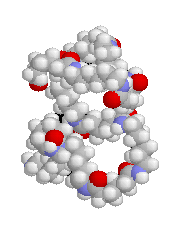Polymers in Health Care: Improving Medical Gadgets and Treatments
Polymers in Health Care: Improving Medical Gadgets and Treatments
Blog Article
Checking Out the Varied Applications and Benefits of Polymers in Different Industries
Polymers, with their varied series of residential or commercial properties and capabilities, have come to be essential in different markets, each enjoying distinct benefits from their application. Polymers. From improving security and performance in the automobile industry to transforming medical devices in the healthcare sector, polymers play a crucial duty. Their environment-friendly nature is changing the landscape of sustainability practices. As we delve right into the midsts of polymers in electronic devices, we discover cutting-edge developments, while their architectural stability transforms the realm of building and construction and framework. The prevalent influence of polymers throughout sectors is a testimony to their versatility and flexibility, forming the future of numerous sectors.
Automotive Market Applications
Polymers play a crucial duty in improving the efficiency and longevity of various parts within the automotive sector. These flexible products are extensively used in the production of different parts, ranging from indoor components to under-the-hood applications. One popular usage of polymers in the automotive market remains in the manufacturing of light-weight components. By replacing typical metal get rid of polymer-based options, lorries can achieve enhanced gas performance without compromising on toughness or safety and security.

Medical Care Industry Advantages
In numerous health care applications, the advantages of using polymers are extensively identified for their varied variety of helpful residential properties. Polymers play a crucial role in the healthcare sector as a result of their versatility, biocompatibility, and cost-effectiveness. One of the key benefits of polymers in medical care is their capability to be customized to particular demands, such as adaptability, resilience, and biodegradability, making them suitable for a large range of clinical applications.
Polymer-based products are extensively used in clinical gadgets, such as catheters, implants, prosthetics, and medication shipment systems, due to their biocompatibility and ability to mimic all-natural tissues. These products can minimize the danger of allergic responses or beings rejected, enhancing individual security and outcomes. In addition, polymers are light-weight, making them suitable for wearable clinical gadgets and ensuring person comfort.
Moreover, polymers enable the growth of cutting-edge therapy approaches, such as hydrogels for cells design and nanocomposites for targeted drug distribution. Their ease of processing and sterilization makes them necessary for keeping high requirements of health in healthcare settings. Generally, the varied advantages of polymers contribute substantially to advancements in medical innovation and patient treatment.
Environmental Advantages of Polymers

Moreover, polymers can add to power financial savings due to their light-weight nature. In markets such as transportation, light-weight polymer products can help in reducing gas consumption and greenhouse gas discharges. Furthermore, polymers can allow the advancement of energy-efficient items such as insulation products that enhance energy conservation in buildings.
In addition, polymers play a crucial duty in lowering water pollution. The use of polymer-based purification systems can successfully eliminate contaminants and contaminants from wastewater, safeguarding water sources and ecosystems. In general, the environmental benefits of polymers make them valuable properties in advertising sustainability and green techniques across different markets.
Polymers in Electronic Devices and Modern Technology
Taking into consideration the raising demand for innovative and lasting options in contemporary industries, the assimilation of innovative polymer innovations in the realm of electronic devices and modern technology has arised as a crucial technique for driving efficiency and efficiency. Polymers have reinvented the electronic devices market by enabling the manufacturing of lighter, much more versatile, and sturdy electronic tools. From mobile phones to clinical devices, polymers play an essential duty in enhancing item style and capability.
One considerable benefit of polymers in electronics is their protecting residential properties, which help secure you can check here delicate electronic parts from environmental aspects and electric interference. Furthermore, polymers are essential in the advancement of adaptable displays, wearable innovation, and published electronics, offering endless possibilities for creating smart and interconnected gadgets.
In addition, the use of polymers in electronic product packaging has actually led to improvements in miniaturization and thermal monitoring, improving the overall performance and dependability of digital systems. As modern technology proceeds to evolve, the adaptability and flexibility of polymers will certainly drive even more advancement in the electronic devices sector, forming the future of modern technology.
Role of Polymers in Construction and Infrastructure
Polymers use many advantages in the construction sector due to their adaptability, resilience, and cost-effectiveness. One key duty of polymers in web link building is their use in layers and sealers, supplying defense against ecological variables such as wetness, UV radiation, and corrosion.
Moreover, polymers play a critical function in lasting building practices by making it possible for the advancement of energy-efficient frameworks. Insulating products made from polymers help manage indoor temperature levels, decreasing the demand for heating and cooling down systems and this article ultimately decreasing energy usage. Furthermore, the usage of polymer-based composites in facilities tasks such as bridges and roads boosts their longevity and minimizes maintenance expenses. In general, the unification of polymers in construction and framework displays their significant influence on modern-day engineering methods.
Verdict
To conclude, polymers play an important function in various sectors such as automotive, health care, ecological, electronic devices, and construction. Their functional residential properties make them valuable in creating cutting-edge options and items. From boosting gas effectiveness in automobiles to improving clinical devices, polymers use many benefits. Furthermore, their effect on minimizing waste and promoting sustainability highlights their significance in modern applications. The widespread use polymers shows their substantial payment to advancing technology and boosting top quality of life.
Report this page